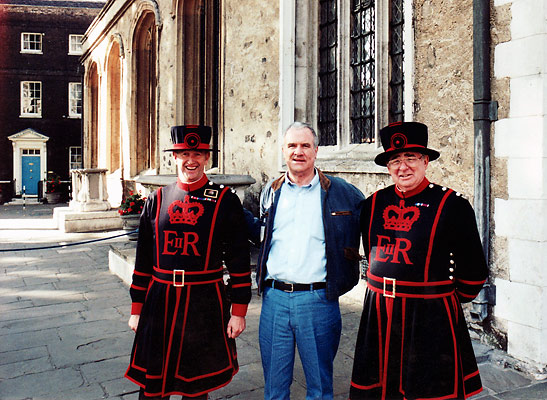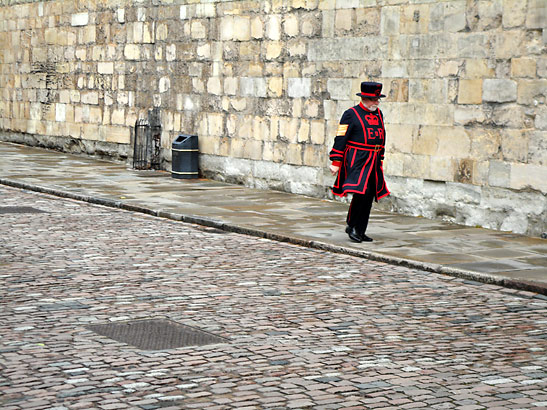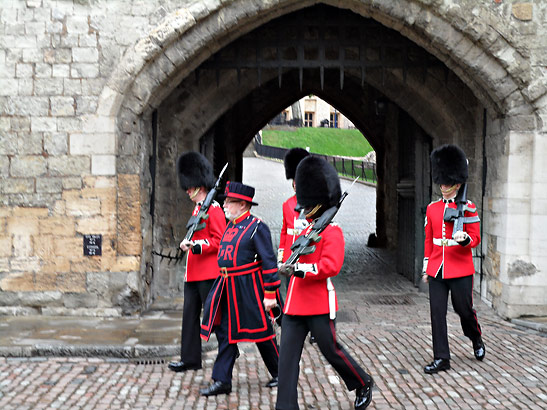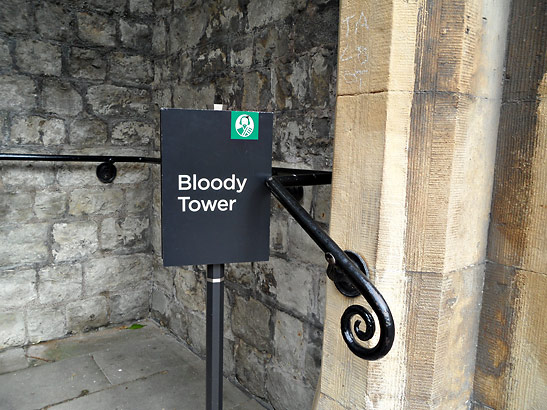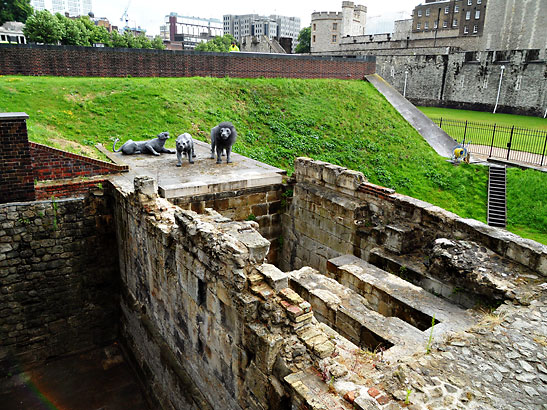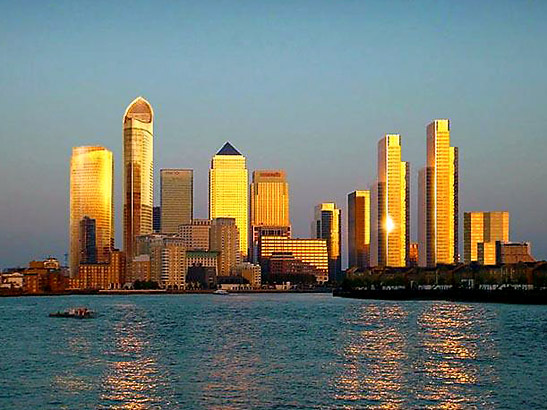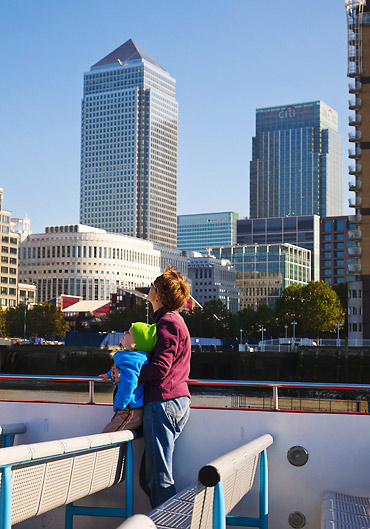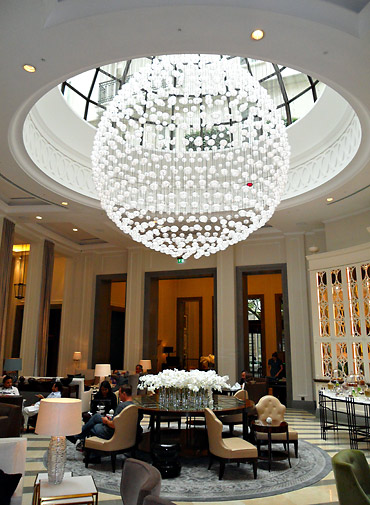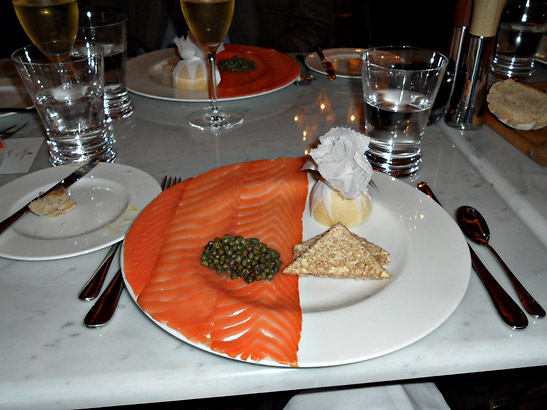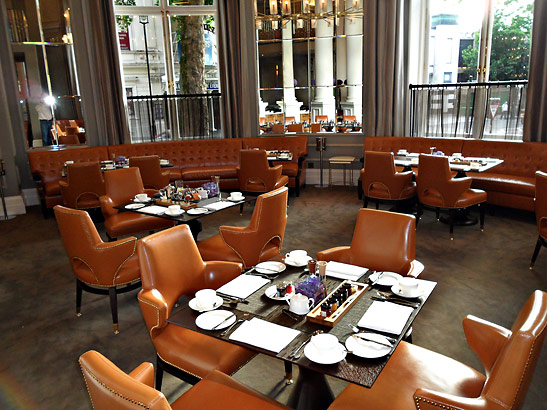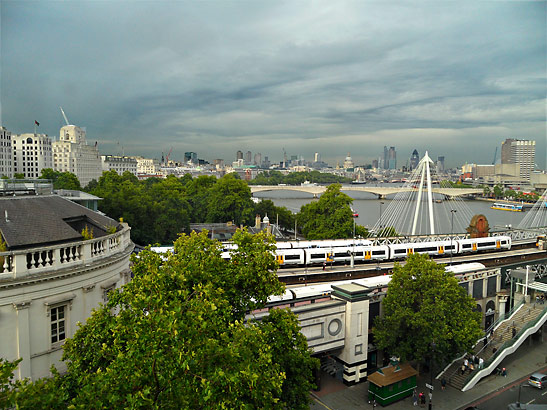|
Here's Why You Should
See
This 700 Year Old Ceremony London's East End is NOW Fantastic; Plus What Makes a 5 Star Hotel Superb By John Clayton
Part four of a five part series
The Tower of London's Fascinating
Ceremony of the Keys As you watch it, it's fascinating to realize that it has been done without interruption, every night for over 700 years. Yes, seven hundred years. Wow, talk about British traditions!!! The Tower of London is another well established icon of that destination, and key's ceremony is the traditional locking up of the Tower, and the importance placed on securing the fortress for the night. Even though the King or Queen no longer resides at the Tower, it is also home to the world famous Crown Jewels, and many other priceless valuables connected to British royalty. Tickets are free, but due to the unique aspect of what takes place, getting those reservations can take a few months - so plan on making those reservations NOW. Here is how this marvelous historical experience takes
place. The Chief
Yeoman Warder (see also www.en.wikipedia.org/wiki/Yeoman_Warders)
is escorted around the Tower locking up all the doors until (and this
is very dramatic) he is "challenged" by the sentry (garbed
in that so British red colored military uniform, and the large black
Busby hat) who he must answer to BEFORE he completes the task. Every
night at precisely 21.52 the Chief Yeoman Warder of the Tower comes
out of the Byward Tower dressed in that marvelous red and black Beefeater
outfit, and he's carrying a candle lantern in one hand, and the Queen's
Keys in the other. He then walks to what's called The Traitor's Gate
(don't you just love those names!) and meets either two or four
members of the British duty regiment of Foot Guards. They then escort
him throughout the ceremony. One solider takes the lantern and they
walk up in step together to the outer gate. All the guards and sentries
on duty salute the Queen's Keys as they pass.
Then in an almost movie type historical setting, the Warder locks the outer gate, and they walk back to lock the gates of the Middle and Byward Towers. All then return to the Traitor's Gate (www.castles.me.uk/traitors-gate.htm) where a sentry awaits them. Sentry: "Halt, Who goes there?" Chief Yeoman Warder: "The Keys." Sentry: "Whose Keys?" Warder: "Queen Elizabeth's Keys." Sentry: "Pass Queen Elizabeth's Keys and All's Well." All four men then walk to the (here's another of
those wonderful and very colorful British names) Bloody Tower archway
and up towards the boardwalk where the main Guard is Then the Chief Yeoman Warder moves 2 paces forward, raises his Tudor bonnet (hat) high in the air, and calls out "God Preserve Queen Elizabeth." The guard then answers, "Amen," and at that time precisely (!) the clock chimes 10pm. And the Duty Drummer sounds the Last Post on his bugle. The Chief Warder then takes the Keys back to the Queen's House and the Guard is dismissed. At 10.05pm all those present (that's the tourists) are themselves escorted out to the Exit.
For an intriguing explanation of what the term "Yeoman Warder" means, plus finding out more about the often used word Beefeater, see a marvelous description at www.en.wikipedia.org/ wiki/Yeoman_Warders For another insight into "A true sign of the times," in July of 2007 a British military service member called Monica Cameron became the very first female Yeoman Warder in the history of this previously all male dominated institution. It tends to be a somewhat involved process of getting tickets, but you can either phone 44 (0) 20 3166 6278 or for American visitors go to www.usps.com Another idea would be to go to the Visit Britain website at www.visitbritain.com. No Canaries in Canary Wharf!
Take a fast look at the photo above, and might your immediate impression be that it's the Hudson River, and that's part of the New York skyline in the background? Well that was mine too when I saw it, and it illustrates very dramatically a vibrant, totally "new" area of London called Canary Wharf. The name too is unique, because many folks think of the bird, and say Canary. But as it relates to this part of London it is pronounced CANNERY Wharf. Go figure!
It's in what used to be the East part of the city, and when I was growing up in London, any trip to that section could be fraught with danger, as it was the Docklands area where ships from around the world loaded and unloaded their cargoes. It was also the area that in WW2, was heavily bombed by the German Luftwaffe, and it fell into further disrepute after the war, growing even more run down, and by 1980 all the docks closed. It is now one of THE in places to live, work and enjoy a new sense of luxury, opulence and good times. Many of buildings are skyscrapers, and it has become a bustling and marvelous place in which to enjoy a new aspect of London. I urge you to visit Canary Wharf. It is home to one of the UK's tallest buildings (shades of New York!) and about 90,000 people work in the area. As a former Brit I love the fact it's located on the historic "Isle of Dogs." For more information about this intriguing part of London, Google it, and type "Canary Wharf, London," for a list of riveting websites. Enjoy! The Joys of a 5 Star Hotel!
In all my years on 3 top LA radio stations with my travel show "John Clayton's Travel With A Difference," I was always interested in the hotels I stayed in, when I was invited on travel media press trips. I say that as all such trips are courtesy of the folks who invite you, and THEY decide where you'll stay. So I wondered where British Airways and Visit Britain would put us. It was a superb new hotel called "The Corinthia." It's been my experience in traveling the world that more often than not, how a hotel FIRST appeals to you, is the image you'll retain for the rest of your trip. That often means how you are greeted; what sort of importance hotel staff place on the word service; what sort of food is served in their restaurants; and as far as I'm concerned (and this may sound strange) how comfortable your bed is. As you see from this photo (above right) of the Corinthia's main area just above the Lobby, it is spectacular. Which is how I found their service.
There were several instances where I needed to cash money on my credit card, making an overseas phone call or just enjoying my breakfast. Everywhere I turned, the service was instantaneous, and very efficient. As you see from the above photo of "breakfast offerings," (and this was only a tiny part of that feast!) it was stunning in its variety, and all served to perfection in the restful and relaxing Northall Restaurant.
The photo here looks like a sort of painted light red on my plate, but it is actually incredibly thinly sliced, truly taste tempting salmon served to us shortly after our arrival, when we met the hotel's very personable GM, Matthew Dixon. I've seen salmon served a hundred or more ways in my lifetime, but this was perfection personified.
When, as that old cliché phrase says, "When only the best will do," the Corinthia fits that to the proverbial T. It was opened in April this year; and is already acclaimed as one of London's finest 5 star luxury hotels. The building itself was "born" in Victorian times, and was once the prestigious Hotel Metropole, and (I love this) in WW2 it was one of the British Ministry of Defense buildings.
This photo was taken in one of the hotel's top class suites, the Corinthia Hotel is only seconds away from the famous River Thames, the Bank Underground station, and the boarding pier for Thames River Clippers, and is conveniently located almost in the center of London's theater district. In our fifth and final feature in this series, you'll read about the most fascinating aviation museum in Europe, plus why the best smoked salmon comes from London, and some thoughts on British trains today, and a marvelous bit of rolling trivia from Wimbledon. Related Articles: |
